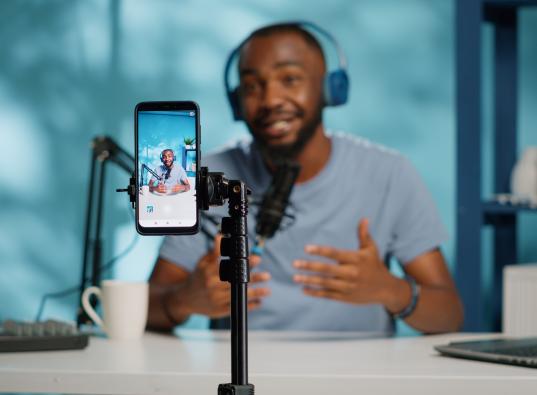Blockchain will come to the rescue, reducing ad fraud
Publishers, media agencies and brands have had to face up to fact that an enormous chunk of their digital ad spend (Juniper Research predicts it costs the industry US$19bn a year) was being wasted on bot clicks and fraudulent inventory.
In March 2017, one of the world’s biggest advertisers announced it was to slash digital spend by US$140m. Others followed suit when stories began to emerge that a glitch in YouTube’s algorithm meant corporates’ ads were being flighted unintentionally on channels owned by white supremacists and terrorists, funding their causes.
The IAB acted fairly quickly, setting up a working group to investigate the potential for blockchain to stamp our ad fraud while providing advertisers and publishers with a clearer standard of reporting metrics. The industry is watching its work keenly (and with crossed fingers) — expect to see some interesting announcements in the coming months.
The CMO’s lifespan will fall even further
Over the last few years, the average tenure of the chief marketing officer (CMO) has been falling fast.
Beset by the requirement to evolve from traditional one-directional brand communication to engaging, authentic communication; a need to understand tech better than the chief technical officers (CTOs) themselves; and demands from the C-Suite that they provide better forecasting and measurement around the sales impact of their spend, they’ve been in the firing line.
Indeed, the most-recent report from global headhunter Russell Reynolds, which conducts a bi-annual study of CMO turnover, found that their lifespan was shorter than ever. Coca-Cola notably dispensed with the CMO role in mid-2017, replacing it with a chief growth officer and suggesting that marketing simply didn’t have a good enough grip of the organisation’s financial wellbeing.
From a tech perspective, Unilever’s Keith Weed made a clarion call to the industry, demanding that CMOs step up their understanding of IT. And for those CMOs still battling with tech, a recent report from Forrester, that suggests we’re still in the stone age of information technology, will provide little solace. Expect more high-profile dismissals as marketing jostles for its place at the boardroom table.
We’ll start treating customers like we care about them
Anyone who’s had to deal with South Africa’s leading telcos’ IVR systems, or has struggled to see if an online retailer really does have those nice shoes in their size and can deliver by Friday, will relate to the challenges corporate SA has had as it adopts new technology. But advances in artificial intelligence (AI) and the deployment of clever chatbots will change our perceptions as this tech hits the mainstream in 2018.
For all Elon Musk’s concerns around AI, the technology offers marketers a huge opportunity to better engage their audiences. Applications such as GotBot promise to cut support-centre costs while improving customer service, while integration with apps such as Facebook Messenger will gather pace as brands seek to emulate the likes of Knorr’s successful Dinner to your Door campaign.
B2B will come of age
The last few years have seen some of the country’s larger brands acknowledge that an advertising firm that knows how to sell toothpaste might not have the insights required to shift earth movers.
Declaring my own personal interest in this (with Mark Eardley, I co-authored Business to Business Marketing: A Step by Step Guide), it seems we’ve been banging on the drum for an absolute age to persuade people that B2B marketing requires a different mindset.
Times are, finally, a changing with the birth of a number of B2B-focused agencies (or formation of B2B practices within established agencies) and a round of pitches calling for these very specialist skills. The momentum is likely to gather pace as we move into 2018.
Mainstream influencer marketing will die
Well, this one’s based more on hope than expectation. At some stage, brands must recognise that shelling out eyepopping sums of money to buy the fleeting loyalty of a major influencer to punt their products just doesn’t carry the authenticity their customers are after.
Aside from few brands managing to lock an influencer in for an extended period of time (it’s not unusual to see a celeb promoting rival brands just a few posts apart from each other), one really has to question the benefit of working with people the calibre of “Keeping up with the Kardashians” star, Scott Disick who managed to cut and paste his agent’s instructions as to when he should load his product endorsement to Instagram.
It’s not that I’m decrying all types of endorsement-driven marketing — I think there’s a real place for micro-influencers who operate in niches with fiercely loyal followers.
But, as the Guardian reports, it may well be the regulators which trigger a self-awareness among brands. There’s growing disquiet over many posts failing to disclose that they’ve been paid for and, with fines mounting, it may just be a matter of time before organisations start to recognise that the potential for reputational damage outweighs the benefits of an endorsement.
*This article was first published on MarkLives.com.
Need Assistance with Digital Strategy?
Rogerwilco’s team of strategists, business analysts and data scientists is here to help.





